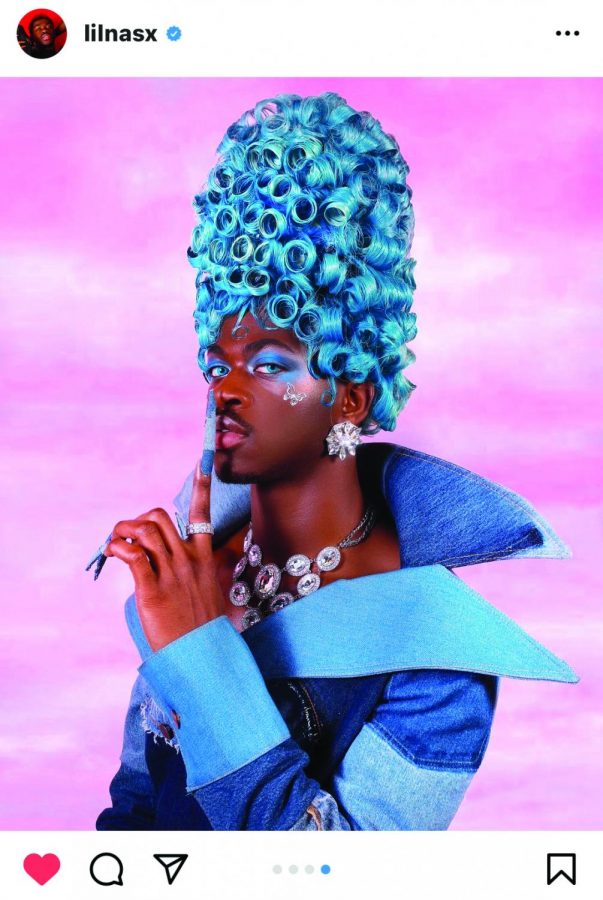Despite the global pandemic and social unrest, parents, highly religious and conservative individuals, and even the Governor of South Dakota, Kristi Noem, have taken the time to criticize 22-year-old rapper Lil Nas X over his music video for the song “MONTERO (Call Me By Your Name).” The song was released on March 26, and since then, it has sparked immense controversy. Most of the hate is in response to his clothing and behavior in the video that many angry Twitter users, especially those who align themselves with right-wing ideology and Christianity, have deemed as “inappropriate.” Those same social media users have even gone as far as to label it as an act of “devil worship,” as the rapper is seen in hell interacting with Satan. Not only is this an overreaction, but the expectation that the rapper should cater his music to young children and work to please homophobes is wildly unfair.
Although there has been outrage, the song debuted at No. 1 on Billboard’s Hot 100 Chart, his second single to do so after “Old Town Road” in 2019. The song is now at the top of Billboard’s Global 200 Chart, the global Spotify chart, and Rolling Stone’s Top 100. Yet, his success does not stop there; the music video has well over 100 million views on YouTube.
Along with these achievements and accolades, the song is highly personal to the rapper. In June 2019, he publicly came out as gay, and he has continued to embrace his true self, as displayed in the song and music video. The video creates a utopia of acceptance, self-expression, and love as it opens with a voice-over from the rapper, “In life, we hide the parts of ourselves we don’t want the world to see. We lock them away. We tell them ‘No.’ We banish them. But here, we don’t.”
Lil Nas X, who names the song “MONTERO” after his legal name Montero Lamar Hill, revealed even more behind the importance of the song during an interview. In Genius’s “Verified” YouTube series, the rapper explained that the song, and its title, was influenced by the 2017 film “Call Me By Your Name,” one of the first movies that he watched featuring LGBTQ+ characters. In the interview, he stated, “I thought the theme was so dope, like calling somebody your own name is love, keeping the love between you two.” Though the song is named after the artist himself, the title references the man who inspired the song, similar to the way that the two main characters called each other by their own names in the 2017 film.
On March 25, the rapper continued to explain intimate and personal details about the song, tweeting, “Dear 14-year-old Montero, I wrote a song with our name in it. It’s about a guy I met last summer. I know we promised to never come out publicly, I know we promised to never be ‘that’ type of gay person, I know we promised to die with the secret, but this will open doors for many other queer people to simply exist. You see this is very scary for me, people will be angry, they will say I’m pushing an agenda. But this truth is, I am. The agenda is to make people stay the f— out of other people’s lives and stop dictating who they should be. Sending you love from the future.”
Although a music video may seem insignificant to many, the rapper is representing the LGBTQ+ community, a group of people that are often overlooked and dismissed, especially in rap. When LGBTQ+ youth see Lil Nas X, an openly gay and highly successful individual, being unapologetically himself, it provides hope. By releasing this song, he chose his audience with the knowledge that many people would be angry. Yet, he continues to reach new milestones and add needed representation in the music industry. At the end of the day, the world has more significant problems than a rapper embracing himself and finding tremendous success while doing it.







